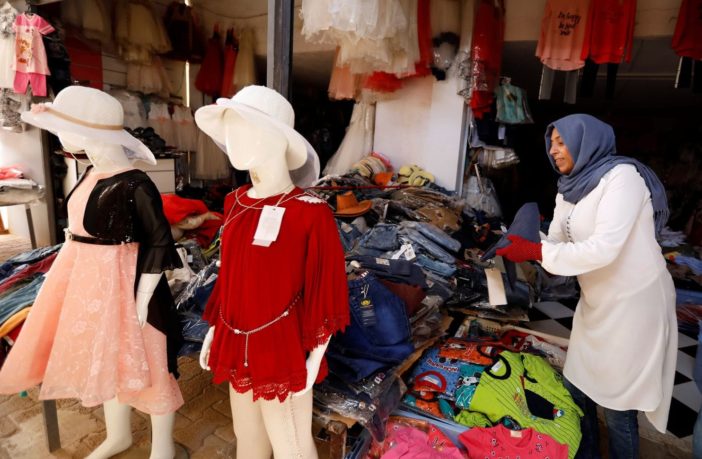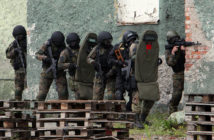The Washington Post
by Max Gallien
Popular talking points suggest that smuggling in North Africa is occurring under the radar of its states, and is subverting them through corruption and the creation of porous borders that terrorist groups can exploit. Proposed solutions, including new border walls and internationally funded surveillance equipment, have focused on improving the surveillance capacity of states and raising the costs of cross-border movements. But this misunderstands the role states play in the region’s smuggling economies.
My research — based on over 200 interviews with smugglers, state representatives and civil society groups in North Africa’s borderlands — shows that most smuggling in North Africa is indirectly regulated by the region’s states. The majority of smuggled goods are moved in accordance with informal agreements between smugglers and state agents that regulate the types of goods coming through, their costs and how much can be transported. This means that we need to rethink the trade’s common image as politically subversive — and note that new border fortifications can easily be counterproductive.
How smuggling really works
Most smuggling doesn’t happen in the desert under the cover of night but takes place at border crossings, with the active participation of police and customs agents. While narcotics and arms trafficking networks do pose a real risk of state subversion, they are a niche among a huge variety of goods smuggled in the region. Instead, differences in tariffs, subsidies and availability have given rise to extensive networks smuggling gasoline, textiles, foodstuff and other consumer goods, contributing to the livelihoods of hundreds of thousands of people in the region’s borderlands. The key nodes through which most goods are smuggled are not lawless spaces — their laws are just harder to see.
The Spanish enclave of Melilla in northern Morocco provides a vivid example. Studies estimate that half of the goods imported into Melilla are then smuggled into Morocco, bypassing formal tariff and trade regulations. Moroccan men and women of all ages line up every day in front of the border crossing on the Spanish side, rolling, pushing and carrying large bundles of goods that they have picked up from a truck nearby. Under the watchful eye of the Spanish police, they slowly make their way through a turnstile and into Morocco, passing a sign showing a man and a woman carrying heavy goods — signaling that the crossing has been reserved for smuggling. As they pass Moroccan customs officials, symbols and numbers on the packages identify the goods as the property of wholesale smugglers who have made regular payments to the authorities. Along other crossings, little tickets carried by the transporters fulfill the same purpose. Once in Morocco, the goods are loaded into trucks and distributed for sale in markets across the country.
The Ras Jedir border crossing between Tunisia and Libya is a similar case. For decades, gasoline and various consumer goods shipped to the ports of western Libya have been taken into Tunisia through the crossing. Here, instead of paying the formal import tariffs, traders were making informal side payments to Libyan and Tunisian customs officials. What at first sight looked like petty corruption, in fact, followed informal agreements negotiated by local smugglers, state representatives and civil society actors, agreements specifying exactly what types of goods could be smuggled through and what payments should be made to whom.
By allowing only certain types of goods to be traded within their rules, these informal agreements provide a clear segmentation among smuggling networks, most notably between the smuggling of licit goods on one hand, and weapons or drugs on the other. They regulate the levels of bribes that are paid, hence the costs of smuggling. And by channeling the trade through small points, they both regulate its quantity and make it highly labor-intensive.
The small size of the turnstile in Melilla and an informal regulation against the use of large vans for smuggling through the Ras Jedir crossing have ensured that thousands of people in the otherwise economically deprived borderlands are employed as transporters in smuggling networks. In some regions in southern Tunisia, northern Morocco or southern Algeria, these are the largest local sources of employment.
How efforts to stop smuggling can backfire
Paradoxically intended to improve states’ ability to regulate movement across their borders, new walls and fences have brought to the brink of collapse precisely those parts of local smuggling economies that states already were regulating.
The toleration and informal regulation of certain types of smuggling has allowed North African states to channel revenue to otherwise economically marginalized borderland communities as well as to politically connected elites and security services. At the same time, it has created economic constituencies at the mercy of security services that are able to crack down on specific smugglers at any time. This is neither equitable nor conducive to development, but it remains the central political role of smuggling economies in the region, and is frequently overlooked as drugs, arms and terrorists have dominated the discourse.
For small-scale survivalist smugglers, the higher costs of navigating new infrastructure are a much higher barrier than for more heavily capitalized networks. As a result, unemployment in already marginalized border regions has risen and costs of living increased, while some of the most dangerous activities — such as narcotics trafficking — continue relatively undeterred.
A key income stream for poorer borderland communities is breaking away, and the crumbling of the old bargain between states and their borderland communities is risking new tensions. As young men in particular are looking for new sources of income in economically marginalized regions, local communities are concerned about rising drug consumption, theft and extortion. As border economies in the region are changing, they may end up being significantly more difficult for states to regulate than they have been in the past.
Max Gallien is a PhD candidate at the London School of Economics specializing in the political economy of informal and illegal economies.








